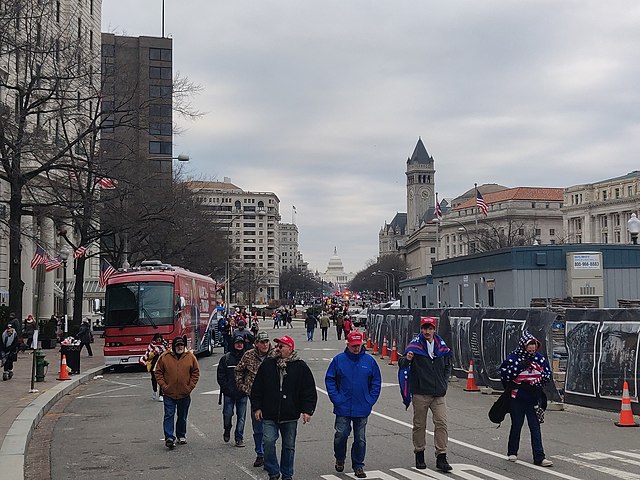
Liberals' Dismissal of the Washington Post 'Economic Anxiety' Study is Predictable and Wrong
Keaton Weiss | February 15, 2021
Last week, The Washington Post published an article entitled “A majority of the people arrested for Capitol riot had a history of financial trouble.” The article found a pattern of bankruptcies, tax liens, and defaults on loans amongst those charged with breaking into the Capitol on January 6th. This revived a fairly old debate over what is the driving force behind Trumpism - is it racism and white nationalism, or is it economic anxiety?
The either/or nature of this debate is itself a false construct; I’ve not heard a single person on either side of it deny that there’s a strain of bigotry and nativism that runs through the Trump base. This article doesn’t attempt such a denial either. According to its own findings, it cites that “nearly 60 percent of the people facing charges related to the Capitol riot showed signs of prior money troubles,” meaning that over 40 percent didn’t show signs of prior money troubles.
Still, the article received backlash from several predictable - but some not so predictable - sources. Unsurprisingly, mainstream liberals like Joy Ann Reid and John Pavlovitz scoffed at the study, as its findings defy both their reductive analysis of Trumpism and their aversion to class politics. Others were more nuanced in their takes, like Nikole Hannah-Jones, who pointed out that “most people charged with a crime had prior or ongoing money problems,” and lamented that the same sympathetic treatment isn’t afforded to petty criminals who act out of desperation to feed themselves and their families.
But even some progressives like Qasim Rashid and Benjamin Dixon took issue with the piece, feeling it excused the actions of the rioters by attributing them to economic insecurity. Of course, the piece made no such excuse. Correlations between economic despair and crime, as Jones herself points out, are nothing new. To cite them is not even to ascribe sole causation for the behavior, much less excuse it.
And so why the hostility to the article, even from more left-leaning people who have, in the past, been willing to admit that economic anxieties were at least in part to blame for the rise of Donald Trump? Their sudden denial of such class dynamics suggests they are more invested in judging and condemning the Trump base than they are in understanding some of the underlying factors that motivate them. Rep. Ilhan Omar tweeted the following in response to the article:
It’s not “economic anxiety” it’s anxiety over losing “status and power” that’s fueling Right wing extremism.
— Ilhan Omar (@IlhanMN) February 10, 2021
There is a white supremacy radicalism in our society and we can’t afford to dismiss or normalize it. https://t.co/WLxmKeMGn8
First, the piece she refers to neither “dismisses” nor “normalizes” white supremacy in any way whatsoever - it simply claims, and backs up with its research, that economic anxiety is a possible second explanation for what happened on January 6th. Second, Ilhan Omar has been one of the strongest advocates in Congress for working class voters, and, as Domenica Ghanem pointed out in her great Newsweek op-ed, she has often fought for policies that would benefit white working class voters in particular (to name one specifically, she introduced a bill to prevent people from being evicted from their mobile homes). She seems to understand better than most that people in financial trouble don’t feel they have much “status and power” to lose.
That mainstream Democrats and rank and file liberals would dismiss this article is no surprise at all - they are committed to the “they’re all racists” angle because it both reinforces their sense of superiority and absolves them of responsibility for their complicity in the economic deterioration that led to Trump’s election. But to see many progressives buy into this denial is considerably more troubling, because they’re the ones who offered such economic deterioration as a main explanation for Trumpism in the first place.
We discuss this more thoroughly on episode 106 of the Due Dissidence podcast. Listen to our full discussion by clicking the player below:
Subscribe to the Due Dissidence podcast on Apple,Stitcher,Spotify,Castbox, Google Podcasts, or any major podcast player!
Photo: Kurt Kaiser